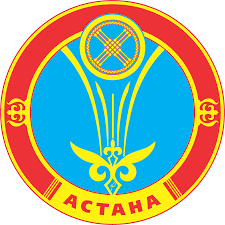Danilenko Mariya
Danilenko Mariya Lvovna was born in the Kiev city, 1909. Her specialty is Agronomist. Her husband Danilenko Ivan Danilovich before his arrest served as a head of the Propaganda and Agitation Department of the MC of the ASCP (b) in the Kharkov city. She was sentenced to 8 years of imprisonment in the corrective labor camp by Special Council of the NKVD of the USSR, March 26, 1938.
In the camp, she worked on her specialty. In 1946 after her release, she went to Kiev, but there was no house, no property, all native refused at her. In desperation she wrote a letter to her best friend which was serving time at the camp. Her friend invited her to Kazakhstan, Alma-Ata, where she continues to work in her specialty. The first time she lived with a friend, and later received a hostel. Maria Lvovna died in 2010, before 12 days to 102 years. Son of Danilenko Nickolay, granddaughter Natalia now are living in Almaty city.
In the museum fund there are personal belongings of Mariya Lvovna: summer dress with a belt made of linen, loose-fitting, sleeveless, forearms and pocket have embroidery, mid-XXth century, white beret, as well as demi-season coat of gray.
Naydis Yevgeniya Davidovna
Naydis Yevgeniya Davidovna was born in 1914 in Zhytomyr. She was arrested on March 9, 1938 on charges of committing crimes under the article 17, 58-8 and 58-12 of the Criminal Code of the RSFSR by the Special Council of the NKVD on April 9, 1938. She was sentenced to 8 years of imprisonment in corrective-labor camps.
November 29, 1939 by Special Conference the criminal case against Naydis Yevgeniya was discontinued.
During a scientific expedition the museum staff met with Yevgeniya Davidovna and recorded interviews. She gave documents on rehabilitation and personal belongings to the museum fund.
In the hall "ALZHIR” coffee-grinder, tea set made of white porcelain, decanter and lace doily are represented.
Yevgeniya Davidovna died in 2010.
Diveyeva Fatima Kadyrovna
Diveyeva Fatima Kadyrovna was born in Kyzylorda city of the Kazakh SSR, 1896. Her nationality is Tatar. In 1930 her husband Diveyev Shakir Galeyevich was People’s Commissar of Trade of the KASSR. From October 1934 to September 1934 – First Deputy People's Commissar of supply of the Kazakh SSR. From September 1934 - People's Commissar of Internal Trade of the Kazakh SSR. From April to June 1937 - Permanent Representative of the People's Commissars Council of the Kazakh SSR in the People's Commissars Council of the USSR. Was arrested on June 25, 1937. He was sentenced to death in February 1938. Was rehabilitated in July 1958.
Sentenced to 8 years of imprisonment in the corrective labor camp as CHSIR (a member of family of the motherland traitors) by Special Council of the NKVD of the USSR, June 12, 1938. She arrived in the Akmola camp department from prison in the Alma-Ata, July 24, 1938. She was released on April 12, 1946. In 1977 she died in the Almaty city.
In 2007, the niece of Fatima apai Diveyeva Almara, who lives in the Almaty city, passed the can to the museum fund, which is now represented in the hall "ALZHIR".
Nuralina Shafiga Rakhimzhanovna
Nuralina Shafiga Rakhimzhanovna was born in 1914 in Bayan village of Pavlodar region. She was convicted in June 10, 1938 by Special Council of the NKVD as ChSIR for 8 years of imprisonment. In Akmola division of Karlag arrived in August 9, 1938 and was there until March 18, 1946. She had no right to back home because she got the passport with stamped "minus 23”. This meant a ban on entry in 23 cities of the country, including Pavlodar. Shafiga Rakhimzhanovna could leave "ALZHIR” only in 1946 and moved to Akmola, where she got married to the former frontline soldier Aralbai Alimbetov. She died in 2008.
In the hall "ALZHIR” personal items of Shafiga Nuralina are represented. A wooden spoon painted by Shafiga Rakhimzhanovna, saucer, wrist watch inscribed with the words "In memory of the meeting of 30.05.1997, the Akim of the region A. Brown”.
Zhurbina Revekka
Zhurbina Revekka Khaimovna was born in the locality of Gremyach Chernigov province, lived in Odessa. Her nationality is Jewish. She was sentenced to 8 years of imprisonment in the corrective labor camp as CHSIR (a member of family of the motherland traitors) by Special Council of the NKVD of the USSR, March 26, 1938. On 26 July 1938 arrived to Karlag from Odessa. On September 29, 1939 leaved at building of the Administraition 201 of the NKVD. Her husband Avraham Alekseyevich Zhurbin before his arrest was Chairman of the Presidium of the Regional Union of Consumer Odessa.
In June 2013 scientific employees visited the museum in St. Petersburg, met with Aleksei Aleksandrovich Zhurbin, the grandson of Revecca Haimovna Zhurbina. Aleksey Aleksandrovich passed to the museum fund the original materials of grandparents. They are a certificate of honour, family photos, poems written at March 8, 1941 and dedicated to her friends at the camp, a death certificate, a certificate of withdrawal charges, labour book, pension certificate, certificate of rehabilitation of Revekka Haimovna and materials of her husband Abraham Alekseyevich.
Frenkel Lydia
Frenkel Lydia Mikhailovna was born in 1909 in Lugansk, Donetsk region. Her husband Frenkel Alexander Mikhailovich was in the post of technical director of Dnepropetrovsk aluminum industrial complex. He was arrested on October 1937 and was sentenced to be shot on March 5, 1938.
Lydia Mikhailovna, an actress of mute cinema, spent 5 years in the camp. Her inexpressible melancholy about last, forever broken life is perfectly embodied in episodes of the Russian film «Moscow saga» the producer of which is her granddaughter Darya Violina. Lydia Mikhailovna loved perfume Chanel No. 5 and always used it. Her coat was impregnated with this scent and when she entered the barrack for the first time all prisoners clung to her, greedy inhaling the scent of last happy life.
Today her granddaughter lives in Moscow where she works as a creative producer of movie company "Risk". In memory of her grandmother she shot such films as «We will live on», «The Moscow saga», and «Heavy sand» and presented them to our museum.
Kazbekova Magrifa
Kazbekova Magrifa Murzagulovna was born in Orenburg region in 1903. Her nationality is Kazakh. In 1929 she graduated medical faculty of Central Asian State university of Tashkent city. In 1937 her husband Kazbekov Ismagul was arrested, and she was sent to "ALZHIR”, later to Dolinka. Children were separated, her son was determined to Magnitogorsk boarding-school, and daughter was determined to the House of Babies. From February 25, 1938 to March 2, 1943 Magrifa Murzagulovna served her term in the camp "ALZHIR” and the camp of Dolinka. From 1943 to 1946 she was deported to free settlement in the camp of village 37 in Balkhash city. In 1956 Magrifa Murzagulovna was rehabilitated. She worked as a doctor all her life long, has repeatedly been awarded medals for her conscientious work.
In the hall "ALZHIR" a "medical emblem" is presented, which Kazbekova Magrifa received from Balkhash Mining and Metallurgical Industrial Complex, December 10, 1974.
































